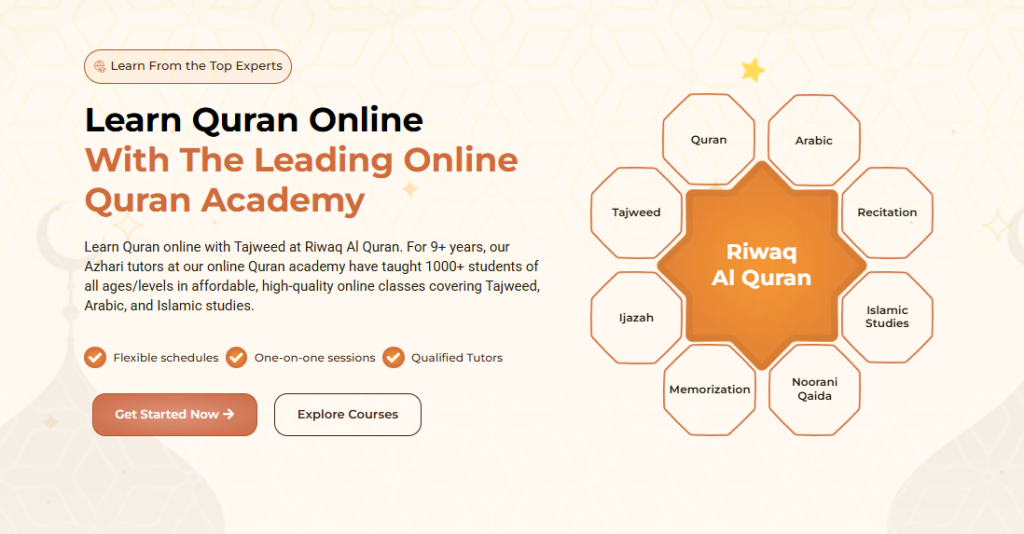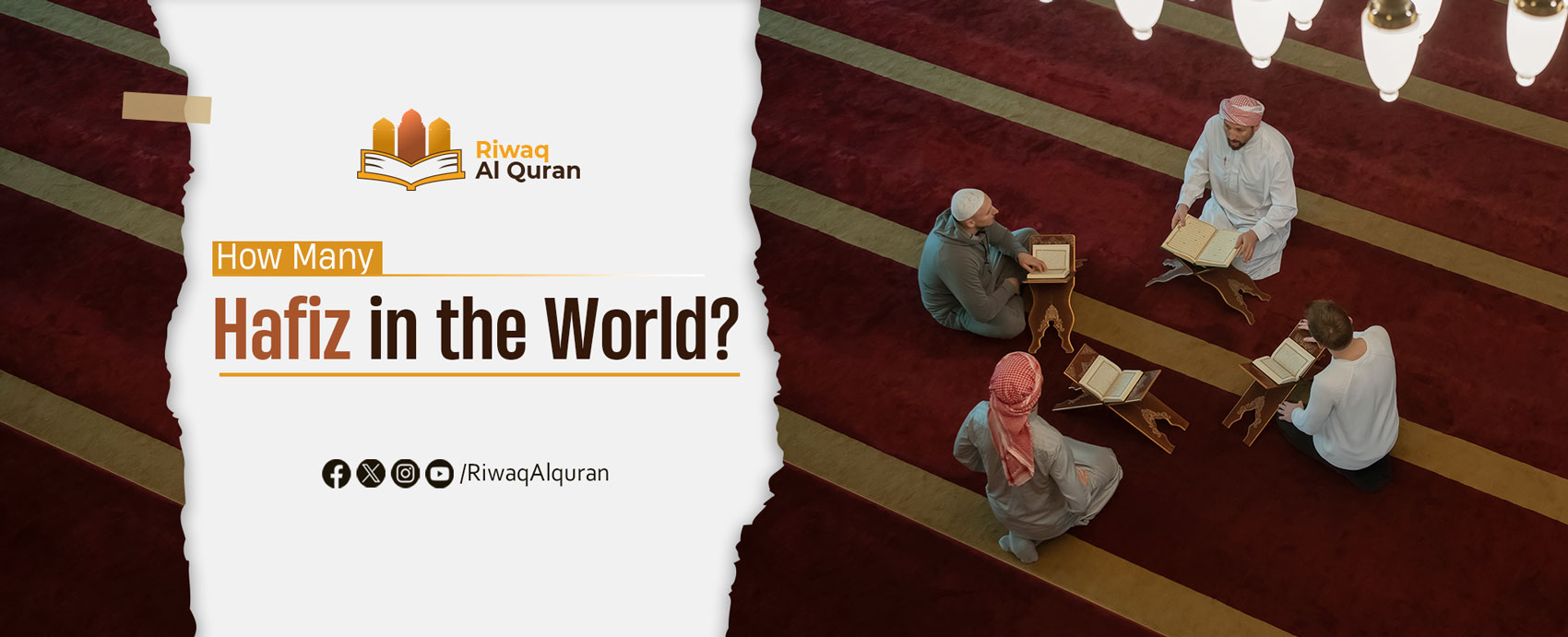Across generations and continents, Quran memorization has remained a living tradition—passed from teachers to students, from parents to children, and from hearts to hearts.
From humble wooden boards in villages to structured institutes in major cities, Hifz continues to shape individual lives and entire communities.
Today, estimates point to more than 200 million Hafiz worldwide, concentrated largely in Muslim-majority countries and sustained through diverse methods of memorization. From early childhood Hifz to adult learners, this global effort reflects both the Quran’s unique memorability and the systems that support accurate, lifelong retention.
Table of Contents
How Many Hafiz are in the World?
Current estimates suggest there are over 200 million Hafiz worldwide. This figure includes those who have memorized the entire Quran in formal institutions, private circles, and through independent study across various continents, with significant numbers in countries with large Muslim populations such as Indonesia, Pakistan, India, Bangladesh, Nigeria, and others.
Arab countries also have a significant number of Hafiz Quran. Countries like Palestine, Saudi Arabia, Egypt, Jordan, Morocco, and many others have a strong tradition of Quran memorization, with countless individuals achieving this milestone.
Number of Hafiz in Non-Arab Nations
Surprisingly, the highest density of memorizers often appears in non-Arab regions. Pakistan is widely cited as producing the largest number of Hafiz annually, with estimates in the millions. The madrasa system there is incredibly robust.
Similarly, Nigeria and Somalia have exceptionally high rates of memorization. In these regions, the traditional “Luh” (wooden board) system remains active. These efforts significantly boost the statistic of how many Hafiz are there.
This staggering number reflects the Quran’s miraculous ease of memorization. However, becoming a strong Hafiz requires structure. Riwaq Al Quran’s Online Quran Memorization Course provides the systematic guidance needed to join these millions with precision and retention.
Start your Hifz journey with a Free Trial

Which Country Has the Most Hafiz Quran?
Pakistan is widely regarded as the country with the highest number of Quran memorizers. Data from the Wafaq-ul-Madaris suggests that over one million students have graduated as Hafiz, with roughly 80,000 new memorizers added annually.
However, numbers tell only half the story. Morocco is a major contender, with some reports estimating over 1.5 million memorizers due to their traditional methods. Nigeria, particularly Kano state, also claims one of the highest densities of Huffaz globally.
Regardless of geography, the goal is retention and accuracy. At Riwaq Al Quran, we ensure you do not just memorize, but master the recitation like the experts of Egypt and the scholars of the Holy Cities.
Connect with our Azhari tutors to perfect your pronunciation.

Youngest Person to Memorize The Quran
The record for the youngest person to memorize the Quran is widely attributed to children as young as 3 years old. A prominent example is Abdul-Rahman Farih from Algeria, who completed his memorization at age three through constant listening.
Similar cases exist globally. In Nigeria, Rukkayatu Fatahu Umar completed her Hifz at 3 years and 8 months. These instances are considered divine gifts, showcasing that the Quran is facilitated for remembrance (Dhikr) regardless of age or literacy.
For toddlers, this feat is achieved through Talqin (inculcation by listening). The child absorbs the sound before they can read the script. This proves that a child’s brain is a sponge, ready to absorb the Quran if exposed to it daily.
You do not need to wait for a miracle to start. Riwaq’s Online Quran Classes for Kids utilize this “Golden Age” of memory. We use age-appropriate methods to turn passive listening into active memorization, building a foundation that lasts a lifetime.
Enroll Your Kid Now to Start Hifz with a FREE Trial

What Is a Hafiz in Islam?
Who is Hafiz? In Islam, a Hafiz is someone who has memorized the entire Quran, word for word, from cover to cover. It’s a remarkable accomplishment that signifies a deep connection with the Quran and a commitment to preserving its teachings.
Hufaz are honored members of the community, revered for their dedication to learning and embodying the words of Allah. They serve as beacons of knowledge, guiding others in understanding and practicing the Quran’s message. May Allah bless all those who strive to become Hafiz and grant them success in their endeavors.
How To Make Children Love The Quran?
Some factors can greatly help in nurturing the love of the Quran in our children and make the memorization process much easier as follows:
1. Starting Early:
Introducing children to the Quran at a young age sets the foundation for a lifelong connection with the holy book. Beginning with simple verses, stories, and teachings tailored to their level of understanding can instill a sense of familiarity and comfort with the Quran from an early age.
2. Positive Environment:
Creating a positive and supportive environment at home and in the community fosters a love for the Quran. Encouraging regular recitation, listening to Quranic recitations together, and celebrating milestones in memorization can motivate children and reinforce their enthusiasm for learning.
At Riwaq Al Quran, we believe in fostering a positive and supportive environment for our students both at home and within the community. We encourage regular Quranic recitation and provide opportunities for families to listen to Quranic recitations together.
3. Role Models:
Providing children with positive role models who exemplify a deep love and respect for the Quran can inspire them to emulate similar attitudes and behaviors.
Whether it’s parents, teachers, or community leaders, seeing others cherish the Quran can have a profound impact on children’s perception of its importance.
4. Interactive Learning:
Incorporating interactive and engaging methods of learning can make the memorization process more enjoyable and effective for children.
Utilizing games, storytelling, multimedia resources, and group activities can stimulate interest, enhance retention, and make learning Quranic verses more accessible and fun.
Experience Riwaq Al Quran Classes
Watch real moments from our live sessions at Riwaq Al Quran and see how we bring learning to life. These clips highlight our interactive, student-focused approach designed to keep learners engaged, motivated, and actively involved in every step of their educational journey.
5. Consistent Support:
Offering consistent support, encouragement, and guidance throughout the memorization journey is crucial for children to stay motivated and overcome challenges.
Providing regular opportunities for practice, offering constructive feedback, and recognizing their progress can boost confidence and foster a sense of accomplishment, strengthening their bond with the Quran.
6. Personalized Approach:
Recognizing and catering to each child’s unique learning style, pace, and interests can significantly enhance their engagement with the Quran. Tailoring memorization techniques and study plans to match individual preferences and strengths ensures a more personalized and effective learning experience.
At Riwaq Al Quran, we personalize each child’s learning experience. Our instructors tailor memorization techniques and study plans to match individual preferences and strengths, ensuring maximum engagement and effectiveness.
7. Encouraging Reflection:
Encouraging children to reflect on the meanings and lessons of the Quranic verses they memorize cultivates a deeper understanding and connection with the text.
Engaging in discussions, asking questions, and exploring real-life applications of Quranic teachings help children relate to the verses on a personal level and internalize their significance.
8. Consistent Routine:
Establishing a consistent routine for Quranic study and memorization helps children develop discipline, focus, and regularity in their practice. Designating specific times for Quranic recitation and memorization as part of daily or weekly schedules reinforces the importance of prioritizing Quranic learning and makes it a natural part of their routine.
9. Celebrating Achievements:
Celebrating children’s achievements and milestones in Quranic memorization reinforces their sense of accomplishment and motivates them to continue their efforts. Whether through small rewards, verbal praise, or communal recognition ceremonies, acknowledging their progress and dedication fosters a sense of pride and encourages them to persist in their memorization journey.
10. Spiritual Connection:
Fostering a deep spiritual connection with the Quran by emphasizing its divine origin, significance, and relevance in daily life instills a profound reverence and love for the holy book.
Encouraging moments of solitude for reflection, fostering a sense of awe and humility in the presence of the Quran, and nurturing a sincere desire to seek guidance from its teachings nurture a strong spiritual bond with the Quran.
By incorporating these factors into the upbringing and education of children, parents, educators, and communities can help cultivate a deep love for the Quran and facilitate a smoother memorization process.


Why Students Love Learning with Riwaq Al Quran
Hear directly from our students about how Riwaq Al Quran Academy has transformed their connection with the Book of Allah. Their experiences reflect the dedication, care, and quality that guide every step of our teaching.
Start Your Hifz Journey with Riwaq Al Quran
Do not just ask how many Hafiz are in the world—become one of them. Riwaq Al Quran offers a structured, supportive environment for students of all ages. Why Riwaq Al Quran:
- Certified Teachers: Learn from Azhari scholars.
- 1-on-1 Sessions: Personalized attention for better focus.
- 100% Money-Back Guarantee: We are confident in our quality.
We also offer Online Quran Classes for Kids, comprehensive Arabic Courses, and Islamic Studies.
- Online Quran Memorization Course
- Tajweed Classes
- Online Quran Classes for Kids.
- Ijazah Program.
- Arabic Language Classes.
- Islamic Studies Courses.
Enroll now for 2 Free Trial Classes and Begin Memorizing Quran Today.

Conclusion
The presence of hundreds of millions of Hafiz around the world highlights how deeply Quran memorization is woven into Muslim societies, especially in countries such as Pakistan, Morocco, Nigeria, Egypt, and Indonesia, where structured systems and cultural continuity sustain high numbers of memorizers.
Remarkable cases of children completing Hifz at extremely young ages further demonstrate the Quran’s accessibility through listening-based methods, particularly during early developmental stages when memory absorption is strongest and learning occurs naturally through repetition and exposure.
Sustaining this tradition depends not only on memorization itself, but on nurturing love for the Quran through positive environments, consistent routines, personalized instruction, and spiritual connection—ensuring that memorization leads to understanding, precision, and lifelong attachment to the Book of Allah.


































